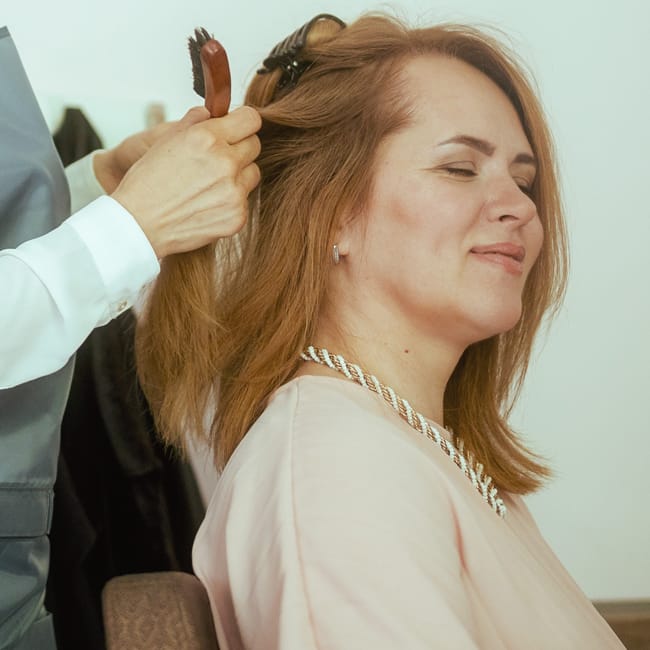Longevity and healthy aging are goals many strive for, and while aging is a natural process, certain habits can help slow its effects and improve quality of life. From maintaining a nutrient-rich diet to staying physically active and managing stress, small lifestyle changes can make a big impact.
Andrew Huberman, professor of neurology and ophthalmology at Stanford, and Dr. David Sinclair shared five tips you should follow if you want to “slow the effects of aging,” or better yet, “reverse it.” Read on to get all their incredible insights.


1. Fasting
Believe it or not, eating constantly can age you in various unexpected ways.
Dr. Sinclair says, "First of all, animals, whether it's a dog or a mouse or a monkey, the ones that live the longest by far live 30% longer and stay healthy, are the ones that don't eat all the time.”
Sugar plays a key factor in this finding, as he notes that “if you have low levels of insulin and another molecule called insulin-like growth factor, those low levels turn on the "longevity genes."
He adds that if you have high levels of insulin all day, “being fed means that your longevity genes are not switched on. So you’re falling apart; your epigenome, your information, that keeps your cells functioning just degrades quicker.” Basically, your clock starts to tick faster.
So, how do we combat this? Dr. Sinclair says to “definitely try to skip a meal a day.” If you’re not sure which meal you should try skipping, Dr. Sinclair elaborates on his routine. “I skip breakfast; I have a tiny bit of yogurt or olive oil because the supplements I have need to be dissolved in it. And then I go throughout the whole day as I'm doing right now here with this glass of water. I’m just keeping myself filled with liquids." This will prevent him from feeling hungry or mistaking dehydration with hunger.
He warns that if you choose to try this, you will surely feel hungry in the first 2-3 weeks. However, a habit takes about 21 days to stick, so as long as you get through the first 2-3 weeks of no breakfast or dinner, your body will eventually adapt.

2. Resveratrol
Resveratrol, a natural compound found in red grapes, berries, peanuts, and red wine, is widely recognized for its potential anti-aging benefits.
Dr. Sinclair adds, “If we gave [resveratrol] to mice their whole lifespan, they [would be] protected against a high-fat diet, have lean organs, and they live slightly longer but not a lot.”
On the flip side, if they gave the mice a high-fat diet without resveratrol, “they actually lived a lot shorter.”
In a study, the mice that took resveratrol consistently often lived “dramatically” longer than the other group of mice.
He does note that if you want to take resveratrol, you can consume it every other day instead of daily use. Always check with your doctor before adding new supplements to your routine.

3. Metformin
Metformin enhances the body’s sensitivity to insulin and reduces blood sugar levels, preventing damage caused by high glucose.
Dr. Sinclair notes that its a drug given to type 2 diabetics to lower their blood sugar levels.
“It's been found that, looking at tens of thousands of veterans, those type 2 diabetics lived longer than people that don’t even get type 2 diabetes,” adding that it's considered a longevity drug now.
As for his personal use, he usually skips metformin if he’s exercising that day. “Metformin reduces your ability to have stamina because it's inhibiting your body’s ability to make energy.” This results in people being able to do fewer reps when exercising. However, “those muscles that you do build up on metformin have the same strength and have much lower inflammation and other markers of aging.

4. Strength training
Over time, our body loses muscle mass, but it's never too late to build and maintain them, and Dr. Sinclair explains why this is so important.
“Maintaining muscle mass is very important for a number of reasons. You want to maintain your hormone levels,” which is crucial if you’re an older male due to declining testosterone levels and muscle mass over time. “By exercising, I will maintain that.”

5. Sleep Cool
This is a little-known longevity tip, but keeping cool could help as well.
“I try to dress without a lot of warm clothes,” noting that he tries to dress in t-shirts during the winter too. Why, you ask? Dr. Sinclair revealed that according to his metabolic winter hypothesis, "Tens of thousands of years ago, we were either hungry or cold or both, and we rarely experience that now.”
He adds that “part of the problem with the obesity epidemic is that we’re never cold.” When we’re cold, our body burns more energy, even if it's very slightly. “Over the whole night, if you’re a little bit cool, you’ll actually spend more energy.”

























